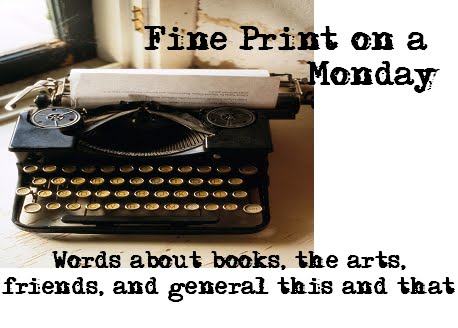...another book discussion selection that will not have me gushing with enthusiasm. I am nice and clean and fresh smelling from all the soapy suds offered up by the flatly sung opera. If an author is going to rehash the forbidden love, and the broken hearts will wait forever to be reunited themes, she better add something fresh to the telling.
My reaction to this novel is partially colored by my preference for novels that lead with style rather than plot. Old plots are just that - old. Heck, even those silly toga wearing Greeks knew that. They were on the ground floor of storytelling, yet they knew enough to switch things up. When everyone gathered for the yearly theatre festival, most in attendance already knew the stories being told. They knew that Oedipus had killed his father, married his mother and (horrors) fathered three children by her. What they didn't know was what approach Sophocles would take with the story. Would he be sympathetic toward Oedipus or was Oed's hubris responsible for his downfall? Would the playwright blame Jocasta for not recognizing her prodigal son? How about the gods and the path they pre-determined for Oedipus and his kin? It's all about the spin.
In high school, I read Elizabeth's Kata's A Patch of Blue. White girl. African American man. Then there's Miss Saigon- also a love destined for challenge. Both stories were told with eloquence and honest emotion. At the very least, I was hoping for a tender, poetically written love scene for Isabelle and Robert. Instead I got this: Small sounds of pleasure and pain and pleasure again slipped unguarded from by throat when he entered the secret place of my body, using the instrument I'd scarcely dared imagine even in the darkened privacy of my old bedroom to create an eternal union between us." The instrument? Really? This stuff is one keystroke away from the old "fruit of his loins" line. Best to have left that scene out...along with the final scene.
If you're looking for an intense story of a lover who waits and suffers, go directly to Love in the Time of Cholera. I'm not into pain as a recreational activity, but this book is painful. It is a symphony, not a soap opera. The rubato rhythms are accompanied by often dissonant harmonies, unpredictable and unwelcome, just like real life. This book forces reality onto readers, daring individuals to see what is before them and to act upon it. Granted, no one needs a steady diet of that type of literature, and that's where chick lit like Calling Me Home comes in handy.
The story takes us on a Driving Miss Daisy journey of an elderly woman being escorted to a funeral by her African American hair dresser. Along the way, the two share interesting histories and lots of stories oozing with social drama - there's abuse, badly behaving children, out of wedlock pregnancies, abortion....all the standards. The author provides the mandatory writer's workshop reversals along the way, and upon reaching their destination, the story is done. No one told the author that. She had to write one more scene where sugar dripped, and the promise of reader tears lurked behind thinly veiled symbolism. You know those final episode TV series scenes - like the one where Mary Tyler Moore leaves her newsroom for the last time, closes the door and then opens it once more and scans the space lovingly before the final exit? Yup, you know what I mean . That's how this books ends. Too, too much for me.
But I will enjoy the discussion knowing there is the right book out there for everyone, and understanding that the group has suffered through some of my less than popular picks over the years. We have different tastes and that's OK. I will enjoy the discussion because I enjoy these friends - we have travelled far together for many years now, and the trips have been adventurous, rocky, silly, provocative and always rewarding and welcome.
Thanks for stopping by.

